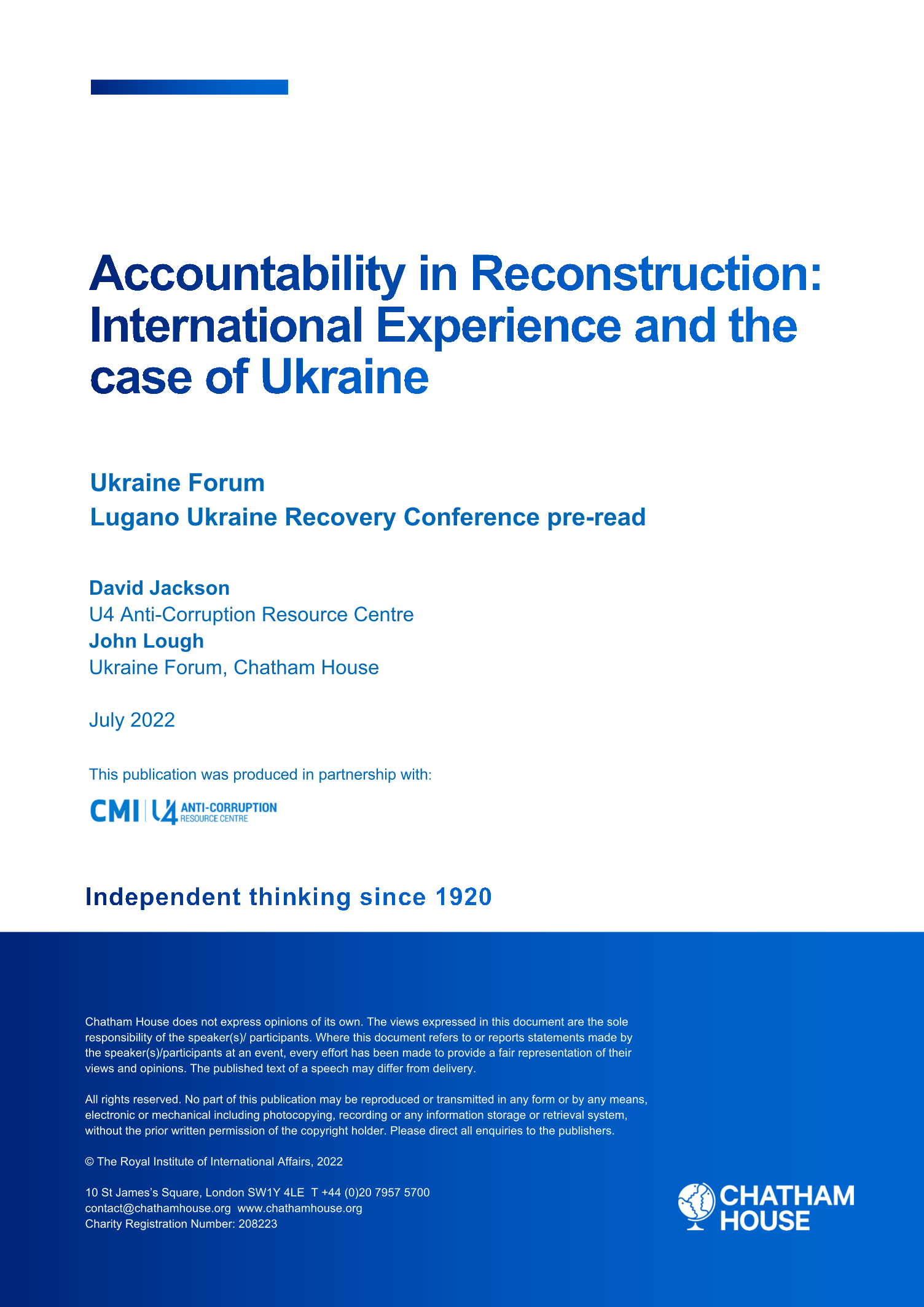Disclaimer
The publication is supported by the EU Anti-Corruption Initiative (EUACI) – the leading anti-corruption support program in Ukraine funded by the EU, co-funded and implemented by the Ministry of Foreign Affairs of Denmark.
The views expressed by the project do not necessarily represent official views of the EUACI, the European Union, or the Ministry of Foreign Affairs of Denmark.
Main points
- Systemic and transnational corruption, as well as policy and implementation capture, are elements of the likely corruption risks
- Anti-corruption in reconstruction matters for trust, efficiency, and broader state resilience
- Principles of political sensitivity, local empowerment, and mutual accountability should underpin recovery efforts
- Tackling transnational corruption, maintaining awareness of gender issues, instituting effective procurement and boosting state capacity are possible immediate interventions in designing reconstruction programmes
- The sustained empowerment of a broad array of actors – from local community groups to business associations – is necessary to support lasting institutional change
